Sharing Strategies to Move From Reactive to Proactive Approaches to Identify New Environmental Concerns
Tuesday, April 30, 2024 • 9:00 a.m. – 4:00 p.m.
Hosted by Emerging Contaminants and Issues of Concern Program Management Team, National Institute of Environmental Health Sciences
Valerie Adams, Ph.D., D.A.B.T.
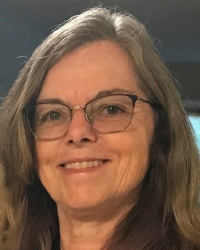
Valerie Adams, Ph.D., D.A.B.T., is a senior biologist with the Defense Health Agency Defense Centers for Public Health – Aberdeen Toxicology Directorate, formerly Army Public Health Center (APHC). She is an alumnus of California State University Fresno (BA Biology m. Chemistry) and the University of Guam (MS Biology) where she studied a predation induced plant defense response, participated in coral reef field studies and completed coursework in aquatic toxicology and environmental contaminants. Adams received a Ph.D. in Cellular and Structural Biology from the University of Texas Health Sciences Center, San Antonio TX where she studied T cell responses to Chlamydia using a mouse model and in vitro approaches. She did postdoctoral research at Colorado State University in the field of chromatin biology and protein biochemistry. She attained her Diplomate of the American Board of Toxicology (DABT) in 2016. She currently conducts in vitro testing to support Warfighter and Civilian occupational health and environmental safety and manages the Health Effects Division Toxicity Assessment program. Areas of expertise include genotoxicity, immunotoxicity, skin sensitization, cardiotoxicity, in silico screening methods, and method development. She has authored/co-authored over 40 technical reports, peer reviewed manuscripts, and a book chapter. Professional affiliations include Society of Toxicology and specialty sections (Mixtures, In Vitro and Alternative Methods). Adams is the president of the Defense Technical Information Center (DTIC) End Users Council (2023-2024) and the chairwoman of the DoD Tri-Services Toxicology Consortium (TSTC, 2024-2027).
Rebecca Clewell, Ph.D. D.A.B.T
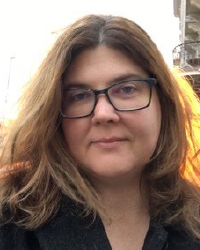
Rebecca Clewell, Ph.D. D.A.B.T, received her Master of Science in Chemistry from Wright Statue University in Dayton Ohio and her PhD in Environmental Science and Engineering from the University of North Carolina at Chapel Hill. She is a Diplomate of the American Board of Toxicology with over 20 years of experience in the development of in vitro and computational tools to support chemical risk assessment. Clewell’s research background includes physiologically based pharmacokinetic (PBPK) modeling, in vitro assay development, systems biology pathway modeling for cellular networks, and development of strategies for harnessing “big data” for toxicological assessments. The overarching goal of her research is to incorporate these diverse data streams into a comprehensive strategy for evaluating human chemical risk without resorting to expensive and time-consuming animal testing. Clewell worked with chemical and consumer product industries for 18 years, building models and strategies to support both internal decision-making and regulatory submissions. As part of the Force Health Protection program at the Air Force Research Laboratory, Clewell is the Predictive Risk Team Lead, focusing on development of products to enable rapid chemical risk assessments and to support operational decisions through streamlined risk communication.
Jennifer Couch, Ph.D.
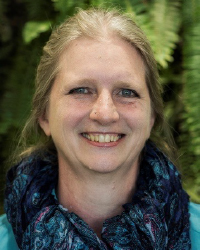
Jennifer Couch, Ph.D., is the Chief of the Biophysics, Bioengineering and Computational Sciences Branch in the Division of Cancer Biology, NCI, NIH. Couch’s branch supports research and development of enabling technologies, models and methodologies including structural biology and biophysical characterization; bioinformatics, computational biology, mathematical modeling, data science, systems biology, citizen science and crowdsourcing methods; and bioengineering, biomimetics and biotechnology. As the NIH Citizen Science Coordinator, Couch works with a group from across the NIH institutes and centers to share information and resources and report on how citizen science, crowdsourcing, and open innovation practices can enhance all areas of biomedical research. Couch collaborates with a wide variety of groups to co-create research opportunities, collaboration building workshops and events that bring outside perspectives, expertise, and technology traditionally supported in other fields, such as game design, mathematics, and community science into the cancer research space. Recent activities include a workshop series designed to enrich US-EU collaboration on Equitable and Engaged AI to Advance Biomedical Research, a partnership with the NSF to bring advances in materials science and soft matter physics into basic cancer research, and an on-going series on trans-disciplinary approaches to cancer health disparities designed to bring lived experience together with different research perspectives and approaches.
Christine Fisher, Ph.D.
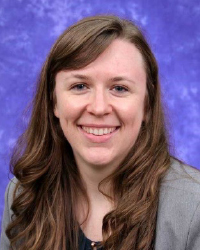
Christine Fisher (O’Donnell), Ph.D., obtained her B.S. degree from Ohio University in 2010 and her Ph.D. from Purdue University in 2015 under the direction of Professor Scott A. McLuckey. In 2015 she joined Merck where she worked as a Senior Scientist in Analytical Research and Development. In 2017 she started a post-doc in the Center for Food Safety and Applied Nutrition (CFSAN) at the U.S. Food and Drug Administration (FDA) in College Park, MD. She was hired into her current position as a Chemist at FDA/CFSAN in 2018. Christine’s research at the FDA has focused on developing non-targeted analysis (NTA) methods using high-resolution mass spectrometry for food safety applications. In addition, Christine has enjoyed being actively involved in the Best Practices for Non-Targeted Analysis (BP4NTA) international working group since 2019, including service as a Co-Chair from May 2021-December 2023.
Christopher Green, Ph.D.
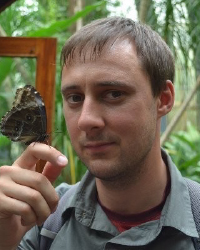
Christopher Green, Ph.D., is an environmental toxicologist with over 10 years’ experience in research and international policy to tackle the global challenge of pollution. His research has covered ecotoxicology, public perceptions of plastic pollution and new chemical test methods. He works directly at the science:policy:diplomacy interface, harnessing evidence and experts to develop new research, guidance and tools to influence decision making. He has run the Secretariat of the Hazardous Substances Advisory Committee and represented the UK at the OECD, G7, the UN Decade of Ocean Science and the International Maritime Organisation. In 2021 he led an interdisciplinary team of policy professionals, social researchers and scientists to conduct a Horizon Scan on Future Chemical Issues using a multidisciplinary, multisectoral and multinational panel of experts to provide the Department for Environment, Food and Rural Affairs (Defra) with foresight in chemicals policy development. He is currently a Policy Lead within Defra’s Ocean and Plastic Pollution Team.
Rochelle H. Holm, Ph.D.
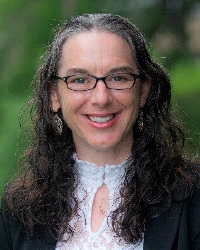
Rochelle H. Holm, Ph.D., is an associate professor with the Christina Lee Brown Envirome Institute at the University of Louisville. She received her doctoral degree in Environmental Science from Washington State University in the United States and has lived in Malawi, Africa, for the past decade. She has broad interests in sanitation systems, water quality, and public health and believes in bridging the gaps across the boundaries of research and innovative practice by collaborating with communities, officials, academics, and analysts. Her current research includes wastewater surveillance supporting healthier communities across both Kentucky and Malawi.
P. Grace Tee Lewis, Ph.D.
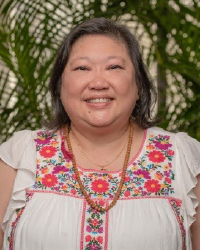
P. Grace Tee Lewis, Ph.D., is a Senior Health Scientist at the Environmental Defense Fund. Tee Lewis has expertise in environmental epidemiology, community air monitoring, and geospatial screening and mapping tools to address environmental, climate and health equity. Her research interests include health impacts of criteria and hazardous air pollutants, particularly to environmental justice communities. She also focuses on community exposures from petrochemical facilities and transportation sectors, and strategies to improve regional air quality and public health. Tee Lewis leads the Environmental Defense Fund’s Data to Action work in Houston. She provides scientific expertise and guidance to community-based organizations and leaders to build climate/ environmental justice capacity and to implement community science efforts. Furthermore, Tee Lewis led multi-disciplinary teams in development of regional and national scale environmental justice screening and mapping tools to identify disadvantaged communities and understand drivers leading to neighborhood-level vulnerability.
Vivek Mathrani, Ph.D., D.A.B.T.
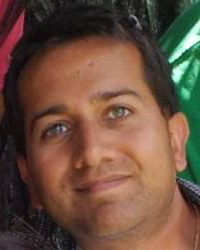
Vivek Mathrani, Ph.D., D.A.B.T., is a Senior Toxicologist in the Human and Ecological Risk Office at the California Department of Toxic Substances Control (DTSC). Since 2010, he has provided human health risk assessment and toxicology support to various DTSC programs, including Site Mitigation and Restoration, Safer Consumer Products, and Hazardous Waste Management. Before DTSC, Vivek was an exposure assessor in the California Department of Pesticide Regulation’s Worker Health and Safety Branch. Mathrani earned his doctorate and master’s degrees in Pharmacology and Toxicology from the University of California, Davis. His bachelor’s degree in Chemistry is from the California Institute of Technology in Pasadena. Vivek has been certified as a Diplomate of the American Board of Toxicology since 2010.
Karen L. Mumy, Ph.D., D.A.B.T.
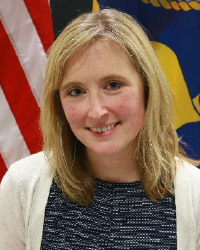
Karen L. Mumy, Ph.D., D.A.B.T., is the Science Director of the Environmental Health Effects Laboratory (EHEL) at Naval Medical Research Unit Dayton (NAMRU-Dayton). Mumy leads Navy Medicine’s environmental health and toxicology research lab consisting of ~40 multidisciplinary active duty, civilian and contractor scientists. The lab focuses on deciphering effects and addressing the health concerns of military member exposure to environmental, occupational, and operational stressors and toxicants. Mumy holds a PhD in Microbiology and was a post-doctoral fellow at Massachusetts General Hospital and Harvard Medical School prior to joining EHEL. She is a Diplomate of the American Board of Toxicology and a member of numerous working groups and panels within the DoD, as well as many scientific societies, including the Society of Toxicology and the American Society for Microbiology. She currently serves as Steering Committee Chair of the Joint Army-Navy-NASA-Air Force (JANNAF) Subcommittee on Safety and Environmental Protection, vice-chair of the Tri-Service Toxicology Consortium, and a section editor for the journal Drug and Chemical Toxicology. Mumy’s publications have appeared in well-respected journals, including the Journal of Toxicology and Environmental Health, Journal of Immunology, and Science. She is also an Adjunct Assistant Professor in the Pharmacology and Toxicology Department at Wright State University Boonshoft School of Medicine and the Department of Physiology at the University of Louisville School of Medicine.
Benjamin Place, Ph.D.
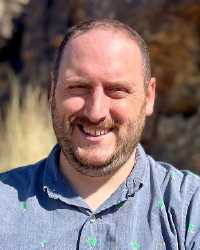
Benjamin Place, Ph.D., is currently on detail at the White House Office of Science and Technology Policy (OSTP) as the Assistant Director for Environmental Health, where he coordinates multiple National Science and Technology Council (NSTC) interagency working groups in the areas of contaminants of emerging concern, toxics exposure, and sustainable chemistry. Outside of his detail at OSTP, Place is a Research Chemist for the National Institute of Standard & Technology with a focus on the measurement of contaminants of emerging concern, including PFAS, in environmental and food materials using both targeted and non-targeted analytical techniques.
Elin Ulrich, Ph.D.
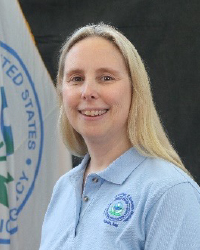
Elin Ulrich, Ph.D., is a supervisory chemist in the Advanced Analytical Chemistry Methods Branch within the U.S. Environmental Protection Agency’s (EPA’s) Office of Research and Development Center for Computational Toxicology and Exposure. Prior, she was a National Research Council postdoctoral fellow at the U.S. Geological Survey’s National Water Quality Laboratory in Denver, Colorado under the mentorship of Bill Foreman. She received a bachelor’s degree in chemistry from Augustana College in Rock Island, Illinois and Ph.D. from Indiana University in Bloomington, Indiana where she studied analytical and environmental chemistry under Professor Ronald A. Hites. Ulrich has been employed by EPA in Research Triangle Park, North Carolina since 2002. During that time, she has held positions as a research chemist, as her division’s associate director for health, acting associate division director, acting and permanent branch chief. She is an author on 40 publications and has presented research on 65+ occasions. In 2021, she accepted a 3-year associate editor position with the Journal of Exposure Science & Environmental Epidemiology.
Ulrich’s research interests have always involved mass spectrometry, with initial focus on developing methods to analyze the enantiomers of chiral pesticides and recent focus on suspect screening and non-targeted analysis (NTA) for exposomics. She recently completed a 2+ year co-chair position for the Best Practices for Non-Targeted Analysis working group and remains actively involved in leadership duties. Ulrich co-leads EPA’s Non-Targeted Analysis Collaborative Trial, has co-chaired two NTA related EPA workshops, and was a member of the organizing committee for the 2022 SETAC Focused Topic Meeting on NonTarget Analysis. She has been a SETAC member since 1997 and has been active as a session chair, short course instructor, North American meeting chair/program committee, and with the Chemistry Advisory/Interest Group. She is also a member of the American Chemical Society (ACS) including her local chapter, ANYL, CINF, ENVR, and AGRO divisions. Ulrich has received eleven EPA awards and five SETAC awards/citations. In her leisure time, Elin enjoys cooking, games, fishing, water aerobics, and watching roller derby.
Marc Williams, Ph.D.
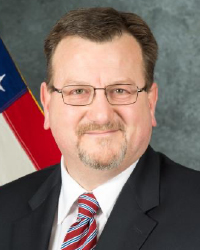
Marc Williams, Ph.D., is a Senior Biologist and Project Manager for the Environmental Ecotoxicology Assessments Program at the Defense Centers for Public Health – Aberdeen, Toxicology Directorate –Health Effects Research Division, where he has served for more than 10 years. With primary degrees in Biotechnology and Bioengineering, and Molecular Cell Biology and Immunology, Williams also holds a Ph.D. in Hematological Oncology and Immunology (Queen Mary College, University of London, UK). Dr Williams was Co-Director of the NIH Pediatric AIDS Immunology Core Laboratory at the University of California San Diego (UCSD), and then led immunology and toxicology programs as an Assistant Professor of Environmental Medicine at Johns Hopkins University School of Medicine, MD and the University of Rochester School of Medicine, NY. He has served as a Biological Scientist at the U.S. EPA and as a Production Manager for health data, portfolio informatics and strategic planning at the NIH. Williams has professional memberships with The Society of Toxicology and The Society of Environmental Toxicology and Chemistry. He is a Fellow of the American Academy of Allergy, Asthma and Immunology (AAAAI) and is the Editor in Chief of Drug and Chemical Toxicology, an Editorial Advisory Board Member for Toxicology Letters and serves on the Peer- Review Panel for Military Medicine Williams has authored over 120 peer-reviewed articles, book chapters, and book titles in immunology, toxicology and public health and served on several DoD, and non-DoD working groups, expert panels, and advisory committees. Williams is the current Co-Chair of the NATO Science and Technology Organization's Applied Vehicle Technology Working Group -Improving the Understanding of Risks from Exposure to Munition Combustion Products.


